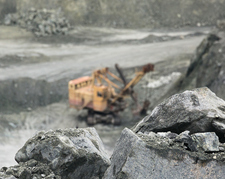 The scientific world was recently shocked after six members of the Conference of the Parties to the Rotterdam Convention (COP-8) managed to block the addition of chrysotile asbestos from the Convention’s list of hazardous substances. The block came despite a unanimous recommendation from the Convention’s scientific committee to name the substance to the list, which leading scientists in the field called “ridiculous,” according to reports.
The scientific world was recently shocked after six members of the Conference of the Parties to the Rotterdam Convention (COP-8) managed to block the addition of chrysotile asbestos from the Convention’s list of hazardous substances. The block came despite a unanimous recommendation from the Convention’s scientific committee to name the substance to the list, which leading scientists in the field called “ridiculous,” according to reports.
According to the World Health Organization (WHO), chrysotile asbestos is a known carcinogen linked to serious health conditions including lung, larynx, and ovarian cancers, in particular mesothelioma. While asbestos has been banned in almost all commercial and industrial applications in the United States, many developing nations rely on the relatively cheap and malleable mineral for numerous applications.
Under the rules of the conference, additions to the hazardous substances list can be blocked by only a single voting member. In this case, six of the world’s biggest asbestos exporters, Russia, Kazakhstan, Kyrgyzstan, Zimbabwe, India, and Syria, all voted to block the deadly carcinogens naming to the list. The veto was hailed by the International Chrysotile Association, an advocacy group that actively lobbies to shut down chrysotile asbestos.
 Asbestos & Mesothelioma Law Blog
Asbestos & Mesothelioma Law Blog







 A group of military attorneys working at Guantanamo Bay prison recently
A group of military attorneys working at Guantanamo Bay prison recently 

